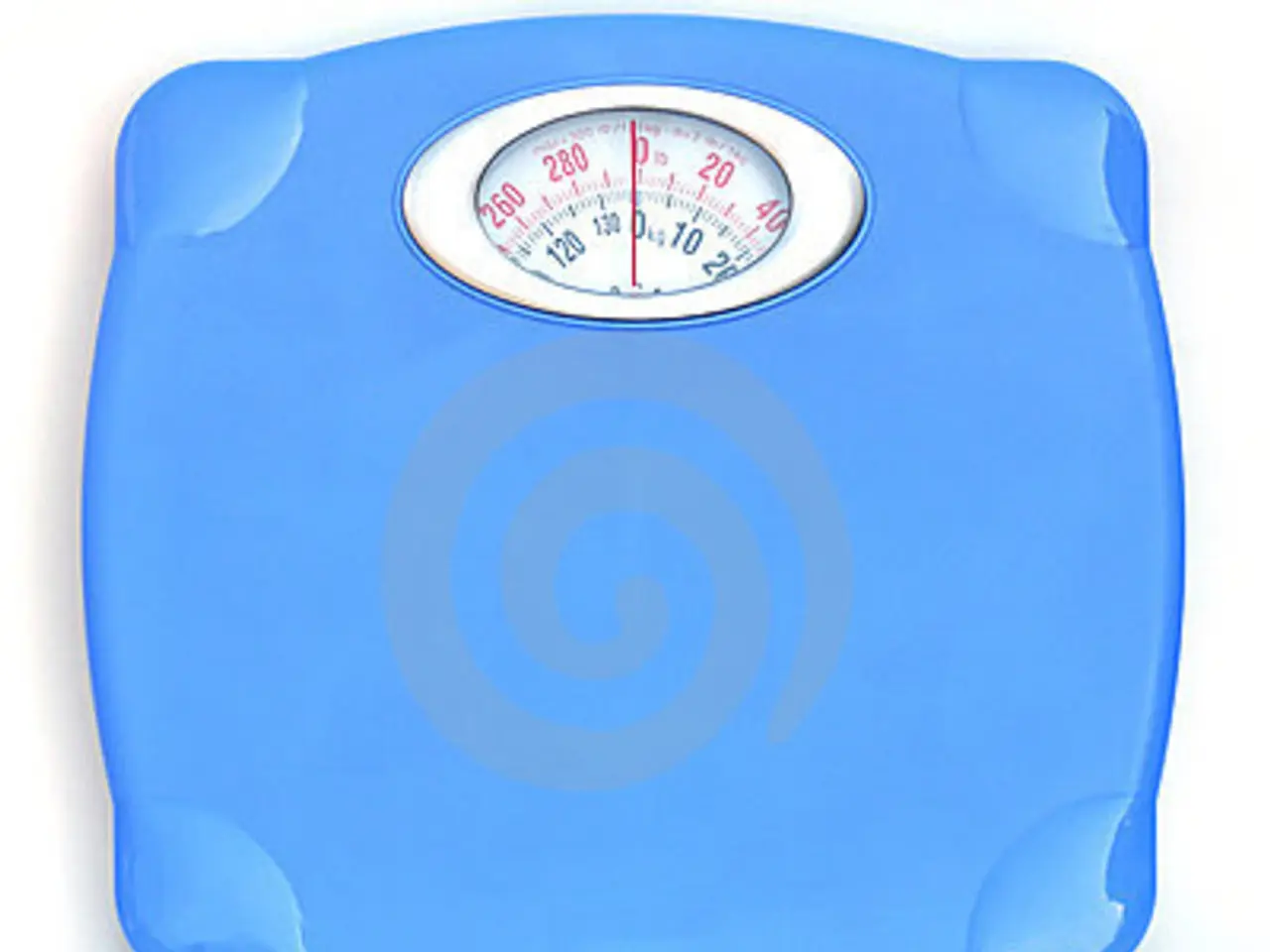Optimal Time for Scales: When's the Right Moment to Step On?
In the quest for maintaining a healthy lifestyle, weighing oneself regularly is a common practice. However, for reliable and consistent results, it is essential to consider several factors that can impact the accuracy of weight measurements.
Firstly, the scale's accuracy and reliability play a crucial role. To ensure precision, weigh yourself on a scale placed on a hard, flat surface. Periodically verify the scale's accuracy by weighing known weights, and compare your weight on different scales to ensure consistency.
Secondly, consistency in measurement conditions is vital. Weigh yourself at the same time of day, ideally in the morning after using the bathroom. Wear the same amount of clothing each time to minimize variability.
Thirdly, hydration levels can significantly affect weight due to water retention. To maintain consistency, ensure your hydration levels are consistent during weigh-ins.
Avoid weighing after meals or intense physical activity, as these can temporarily affect weight. Consistency is key, and people should pick a more suitable time of the day and stick to it. Additionally, it is recommended to avoid weighing at gyms, health clubs, and other fitness facilities due to variables that are hard to control.
For consistent tracking of weight loss or gain, consider weighing yourself at roughly the same time of the day, using only one set of scales for the most accurate results, and calibrating your scales according to the manufacturer's instructions. Measuring your weight in the morning also makes it convenient for many people to strip down and step onto the scales.
It is advisable to avoid stepping on the scales after certain activities that can throw off the measured weight, such as immediately or closely after a large meal, after drinking a large amount of liquid, following a workout or physical activity, or on the days before your period.
A 2017 study showed that only 16 out of 152 scales at child health clinics were 100% correct. Therefore, consistently using the same scales allows for accurate tracking of weight changes, even if the calibration is inaccurate.
Digital scales are more accurate than spring-loaded bathroom scales, and it is recommended to place the scales on firm, level flooring, such as tile or wood, and stand with both feet in the center of the scales and remain as still as possible when measuring weight.
While weight can serve as a guide to weight loss, it is essential to remember that it is not the only indicator of health. People should not get "too hung up on the number" on the scales and should monitor other health indicators such as body measurements, progress photos, how clothes fit, energy levels, and overall health markers like blood pressure and cholesterol.
Lastly, people should record their weight to the nearest decimal point for accurate tracking. By considering these factors, you can improve the accuracy and reliability of your weight measurements and track weight changes more effectively over time.
- For improved accuracy in weight-management, it's important to use a digital scale, placing it on a firm, level surface such as tile or wood, and standing still during the measurement.
- To maintain consistency in health-and-wellness tracking, consider weighing yourself at the same time of day, using only one set of scales, and calibrating them according to the manufacturer's instructions.
- In addition to weighing, it's crucial to monitor other health indicators like body measurements, progress photos, how clothes fit, energy levels, and overall health markers such as blood pressure and cholesterol to get a more comprehensive understanding of health.




